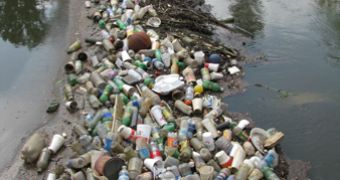About four years ago, the Sierra Nevada Conservancy, together with several community organizations in the region, decided to team up and set the basis for the Great Sierra Nevada River Clean-Up project.
As they explained back then, the main drive behind this environmental campaign was the fact that most of the people presently living in California relied on the Sierra as their primary water source, and having significant amounts of garbage either in or close to that river could ultimately impact on public health.
Jim Branham, executive officer for the Sierra Nevada Conservancy, was pretty straightforward when commenting on this project as follows: “About two thirds of Californians get their water from the Sierra, so it is noteworthy that so many volunteers take part in cleaning our rivers, lakes and streams.”
Recent news concerning the Great Sierra River Clean-Up projects informs us that, up until now, roughly 571 tons of trash have been collected by the 57,442 volunteers who agreed to become actively involved in lending a helping hand to the ecosystems in this part of the world.
“In just four years, the Great Sierra River Clean-up has removed 571 tons of trash and debris from our watersheds,” further explains Jim Branham.
In case anyone was wondering, these numbers make this green-oriented project one of the largest 24-hour volunteer events in California.
Inhabitat explains that, for the most part, volunteers simply walk about beaches and riverbanks, picking up whatever items are not supposed to be there and making sure they are properly disposed of.
As was to be expected, certain objects tend to stand out from your otherwise common pile of trash. Thus, volunteers reported having found rather peculiar items such as a concrete statue of a bunny, a rubber chicken and even a lamp post.
Although we hope these volunteers will keep up the good work, we also wish that in the years to come they will have significantly less trash to collect from the regions they intend to “patrol.”

 14 DAY TRIAL //
14 DAY TRIAL //